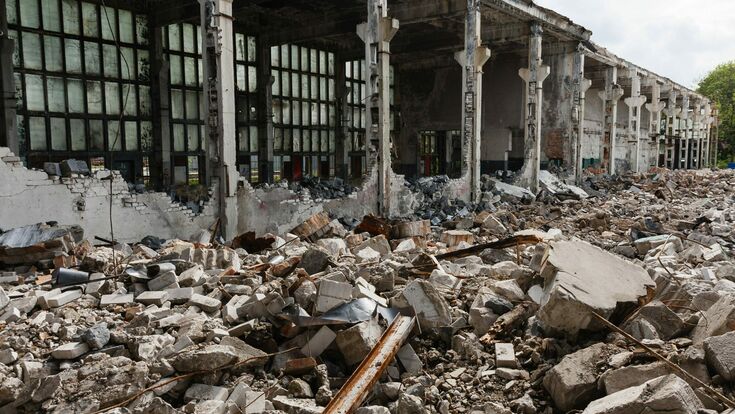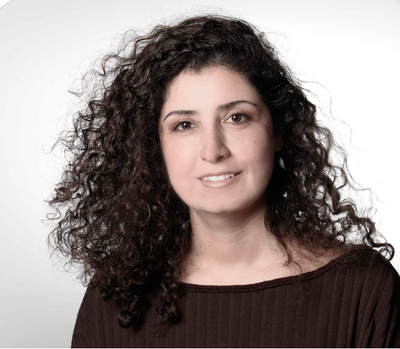Disaster Waste Management : How to deal with disaster waste

The International Solid Waste Association (ISWA) recently organized a workshop on Disaster Waste Management, which assembled experts and representatives from various municipalities and institutions. The workshop aimed to share knowledge and experiences, as well as to discuss strategies for improving disaster waste management. It was led by Dr. Sophia Ghanimeh, Chair of the Scientific and Technical Committee of ISWA Lebanon. The workshop follows previous work done on disaster waste, including a workshop co-organized with UNEP and ISWA on disaster waste management held in Beirut in November 2023 – for which a handbook is being written and will be published soon.
How to manage disater waste
Dr. Sophia Ghanimeh's workshop on disaster waste management highlighted the challenges and health risks associated with earthquake waste. Earthquake waste, which includes collapsed structures and trapped waste within damaged buildings, presents difficulties in handling due to its high quantities and the need for heavy machinery. It also poses significant health risks, particularly from hazardous materials like asbestos. The workshop emphasized the importance of disaster waste management (DWM) through short-, medium-, and long-term actions, as well as the development of contingency plans involving the entire community.
Like our content? Subscribe to our newsletters!
To mitigate the impact of disaster waste, it is essential to assess the health risks, prioritize waste categories, and develop appropriate waste management options. Training requirements should focus on identification, prioritization, and waste management strategies. Contingency planning involves assembling a team, designing a review and development process, and maintaining a schedule for updates. The responsibility for managing disaster debris falls on various stakeholders, including local and regional administrations, practitioners, and donors.
During the discussion, a representative from Kocaeli Municipality discussed the challenges faced by the highly industrialized region during the major earthquake in the 90s, including the disruption of over 400 fuel stations which hampered relief efforts. They outlined their current risk categorization approach and resilient city plan, which includes disaster waste management. In the coming year they plan to inspect 800 industrial sites and their disaster preparations, classify waste types, and engage local authorities to develop comprehensive plans. The Istanbul Municipality representative emphasized the importance of prioritizing waste types and developing contingency plans for infrastructure degradation, as damaged roads caused major logistical issues during the recent earthquakes.

The Environment Ministry Representative discussed the challenges faced by 11 damaged cities and the coordination of collaboration with 800 municipalities to provide equipment and personnel to the affected area. They mentioned the "twinning" of cities for mutual support during disasters, though they noted the need to improve the selection process as both "twins" may be affected by the same earthquake. The Ankara Municipality representative highlighted their efforts to maintain adequate disposal capacity and update risk plans, particularly addressing the frequent floods in the area. ISTAC also pointed out the need to improve the "twinning" of cities to ensure mutual support is effective during disasters.
Dr. Ghanimeh shared her own experience from the Beirut explosion, emphasizing the importance of proper planning to avoid waste management complications with timely interventions to relieve indirect effects. She also recommended early segregation of waste streams where possible as otherwise mixed streams can become unusable due to contamination of practical issues of recovery. She underscored the significance of addressing these challenges during the planning phase in order to create effective disaster waste management plans that can be implemented efficiently to maximize their mitigation potential.
Gaining insight
The workshop provided a valuable platform for participants to exchange experiences, ideas, and best practices in disaster waste management. The insights gained will help inform future strategies and foster a more collaborative approach to managing waste during disasters.
ISWA would like to thank the participants for their contributions, as well as the organizations that were instrumental in putting together the workshop which include the hosts, IFAT Eurasia, and the Turkish National Committee on Solid Waste (ISWA’s Turkish National Member). A special vote of thanks of course to Dr. Sophia Ghanimeh for leading the workshop, without her expertise none of this would have been possible, and ISWA Lebanon for their support. Finally we would like to highlight our partners at the UNEP who supported the previous workshop, as we see this event as a follow up to that and hope that there will be further opportunities to continue expanding on this vital work to build more resilient communities and waste management systems across the world.

